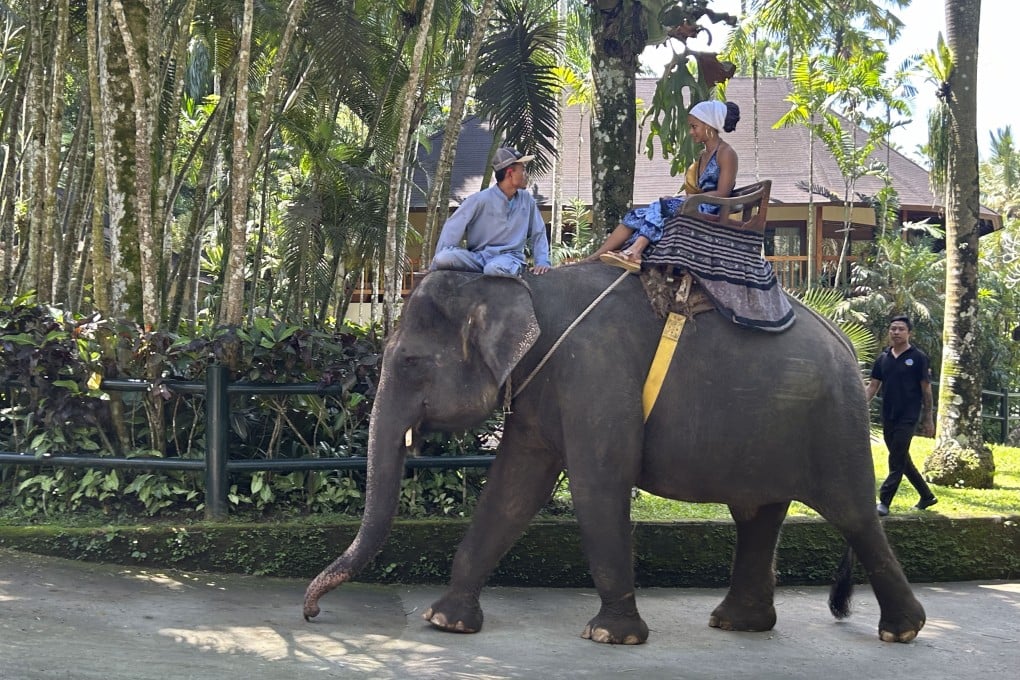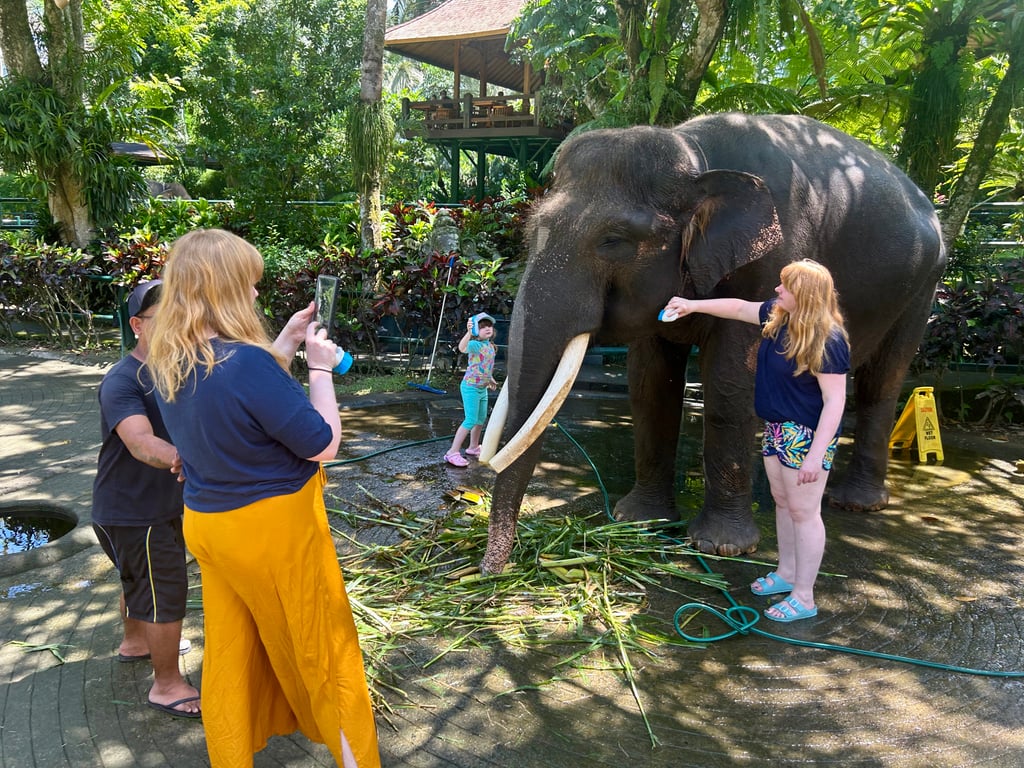Are Bali’s captive elephants made to do ‘cruel’ tourist activities or ‘healthy and happy’?
- Are captive elephants in Bali mistreated and subjected to cruelty, as critics say, or do they enjoy human interaction? We visit parks to see

There are no ethical ways to see wildlife in captivity in Bali: that is according to World Animal Protection (WAP), an animal welfare group whose assessors inspected every zoo and wildlife park on the Indonesian island incognito, documenting what it describes as “cruel” activities set up for tourists such as elephant bathing and riding, orangutan shows and selfies, and swimming with dolphins.
“What may be an island paradise for tourists is a captive hell for more than a thousand wild animals trapped in shockingly inadequate conditions across wildlife entertainment venues,” Suzanne Milthorpe, head of campaigns for WAP, said in a press release last year.
It was the latest shot fired in a years-long campaign by activists such as People for the Ethical Treatment of Animals (Peta) and travel companies including Flight Centre urging a ban on interactive wildlife experiences, elephant riding in particular.
“While elephants may be known for their strength and size, their backs are not naturally designed to carry weight, as their spines extend upwards,” Wildlife Friends Foundation Thailand project director Tom Taylor said in a release featuring a 2007 photo of an elephant with a sunken spine that had been forced to carry tourists for 25 years.

“Constant pressure on their backbones from tourists can result in permanent physical damage.”
Despite this alleged cruelty, elephant parks in Bali are remarkably popular with tourists. Of more than 6,000 reviews for Bali Zoo, 86 per cent come with either an “excellent” or “very good” rating.
